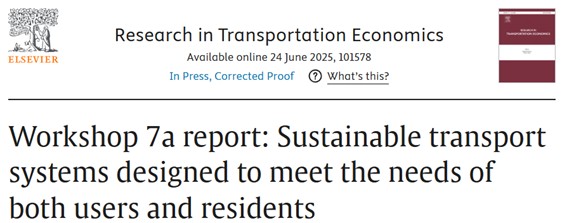Göran Smith, Camila Balbontín
Abstract
There is a fundamental tension between user convenience and system efficiency in transport. This workshop set out to bridge the discussions on user-centric mobility with those on transport justice and sustainable transport. Based on eleven papers offering insights into public transport user groups and preferences, post-pandemic mobility behaviours, transport infrastructure planning and reform, and transport governance collaboration and capacity from transport systems across six continents, the workshop underscored that users are not all the same and that new travel patterns are emerging. It also highlighted the challenges of infrastructure reform and multi-level transport governance. To design sustainable and just transport systems that efficiently deliver value to a diverse range of users and residents, the workshop recommends that policymakers increase flexibility; think, plan, and assess across domains; and involve a broader set of stakeholders than currently engaged. Research should bridge the theory-practice gap, rethink system designs, and explore land-transport interactions. To build upon the discussions from this workshop, the next Thredbo conference should host a session focused on the successes and failures in implementing sustainable transport policies, with particular emphasis on the involvement of, and impact on, underrepresented groups, communities, and silent majorities.
